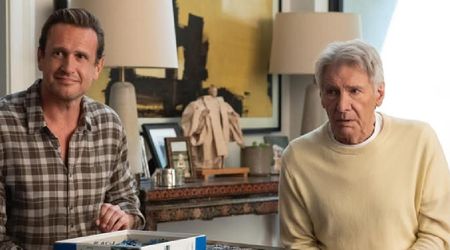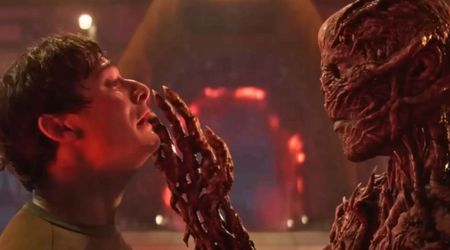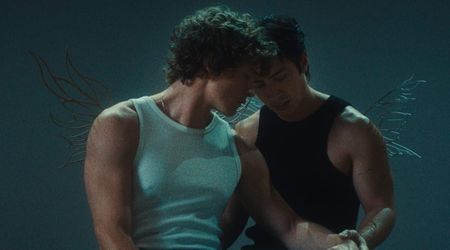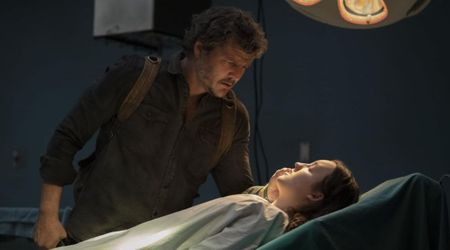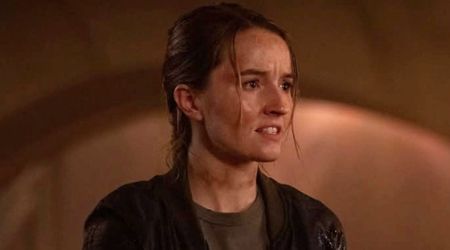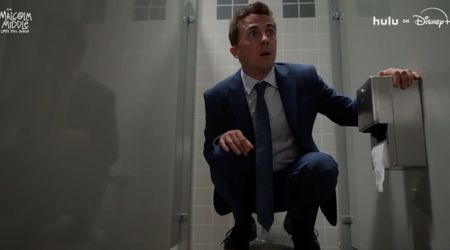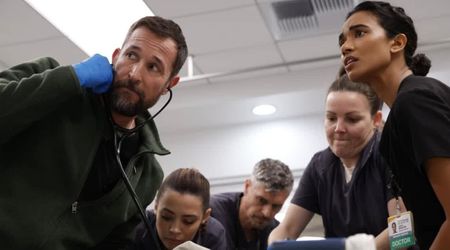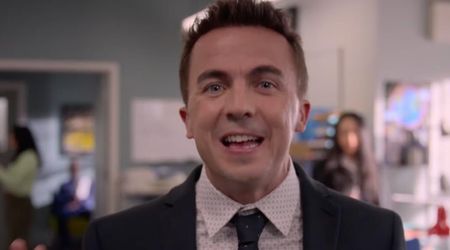'Patrick Melrose' series finale review: 'At Last' provides a fitting conclusion to a brilliant show

The events of 'Mother's Milk,' the fourth book in Edward St. Aubyn's haunting semi-autobiographical pentalogy, were covered in the fourth episode of Showtime's 'Patrick Melrose,' and featured prominent themes that were prevalent throughout the rest of the series: a befitting background score, intermittent flashbacks that provide an ever-present link between past and present, and the side-characters who each played a small but significant role in Patrick's life.
Viewers were taken back to Patrick's idyllic summer home in the south of France, where, this time, he's visiting with a family and small children of his own. Sprinkled throughout the episode are revelatory crumbs from the series' previous ones as Patrick is never truly able to escape the trappings of his torturous past.
While his incestuous relationship with his father David (Hugo Weaving) was laid bare in 'Never Mind,' the depth of his loathing for his absentee mother Eleanor (Jennifer Jason Leigh) was explored in last week's episode.
Leigh's brilliant portrayal of a now-bed-ridden and barely lucid Eleanor who communicates with nothing more than a few eye-twitches and soft-spoken but nonetheless piercing words was one of the highlights of the episode, with commendable performances from the likes of Anne Madeley (Mary), Jessica Raine (Julia), and Jonjo O' Neill (Seamus).
'Mother's Milk' left us with two heavy things to ponder on: Eleanor asking Patrick to kill her and coincidentally (or maybe not) Patrick once again falling down that debilitating spiral of addiction — the alcohol served as a worthy replacement for the heroin — and losing control of his carefully glued-together, fragile life.
Season finale, 'At Last,' looked to continue where its predecessor left off.
It's April 2005. Eleanor is the last connection to Patrick's troubled childhood. Now, she's dead, with her face ominously peering out of her coffin in a not too dissimilar fashion to that of her husband in episode one.
Director Edward Berger and writer David Nicholls have consistently used flashbacks to tie together the series and 'At Last' is no different. Berger makes the viewer revisit and relive each tumultuous stage of Patrick's life all over again, ending with Eleanor's last-second change of heart in wanting to be euthanized.
So then, the actual cause of her death is never addressed, quite possibly on purpose. Instead, however dark or gruesome it may be, Patrick is shown to view the ordeal as a cathartic experience. "I'm an orphan at last," he tells his now-estranged-wife Mary with an almost childlike glee. The constrictions (read David and Eleanor Melrose) that weighed upon him and pulled him back into the abyss his whole life are no longer there, but instead of feeling happiness, he feels anger and rage.
Throughout the series, there seemed to be a running question of "Who is the worst parent, David or Eleanor?' and so far, the answer seemed to be unanimously David. That opinion seems to be fortified with a dozen or so people coming up to Patrick and telling him how great and charitable a person Eleanor was. But as it was with 'Mother's Milk,' 'At Last' looks to close these so-called open-endings by delving further into her character and letting us take that decision for ourselves. A brief appearance by Hugo Weaving at the episode's conclusion adds more food for thought and surprisingly, the answer is not anywhere as clear-cut anymore.
As far as the supporting cast is concerned, each one can hold their head up in pride. Pip Torrens' Nicholas Pratt was undoubtedly the most enjoyable and his presence was missed in episode 4. He makes his comeback in the series finale, and like the others, is a much older version of himself, but without having lost any of his sharp-tongued, sneering quips and remarks that made you feel he was David Melrose-lite.
Aileen Walsh's Anette, who is practically the polar opposite with her cheerful demeanor, dovetails superbly with the older Pratt and provides excellent comedic relief in what is supposed to be a morbid and dark episode (well, comparatively more morbid and darker compared to the previous ones). She also delivers what was possibly the most poignant piece of advice in the entire series by telling Patrick that "Sometimes, those who deserve the most blame, deserve the most compassion." A special mention to Elizabeth Berrington, who in her few odd minutes as Fleur, depicted the blithering but well-meaning drug addict to perfection and annoys Pratt to death.
Patrick's character is complicated, to say the least. A desperate longing to not become his father and mother and the instinct to care and protect his two children is always at the back of his mind but often takes second place to the alcohol and the drugs that help him numb the pain and the emptiness. Be it the eternal state of existential dread, suicidal tendencies, schizoid behavioral patterns, infidelity, or the desire to undercut every honest emotion with irony and sarcasm, Cumberbatch manages to portray what is an incredibly diverse array of complex emotions with the consummate ease of the accomplished actor that he is.
As gargantuan a task it may have been to adapt what many, including Cumberbatch himself, consider to be one of the greatest works of prose in the 21st century into just five hours of programming, both Berger and Nicholls manage to do so with little fuss and great aplomb. The character development is flawless, while the casting, sets, and costume design each play their part in immersing us into Aubyn's carefully-crafted and self-destructive world and giving us one of the most invigorating shows in television.

